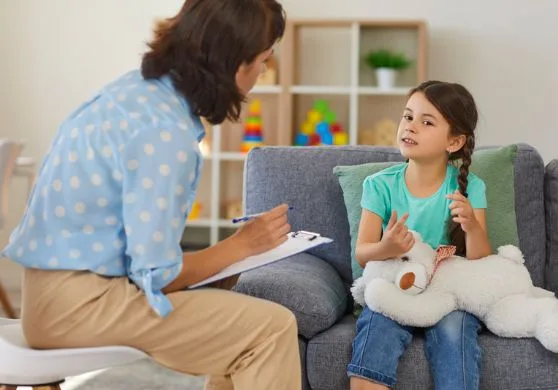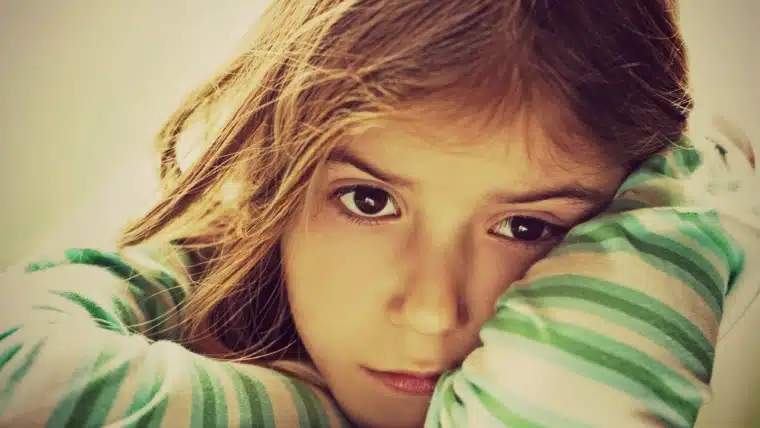Welcome to our comprehensive guide on ADHD in children, an important topic that affects many children and families. As a pediatrician specializing in child health, I aim to provide you with valuable insights and information about Attention-Deficit/Hyperactivity Disorder (ADHD) in children. This guide will help you better understand the condition, its symptoms, diagnosis, treatment options, and strategies for coping.
What is Childhood ADHD?

Childhood ADHD, or Attention-Deficit/Hyperactivity Disorder, is a neurodevelopmental disorder that commonly affects children and adolescents. It is characterized by persistent patterns of inattention, hyperactivity, and impulsivity. ADHD in Children may struggle with focusing, staying seated, controlling their impulses, and following instructions.
According to the American Psychiatric Association (APA), ADHD affects approximately 5-10% of children worldwide. It can significantly impact a child’s academic performance, social interactions, and overall quality of life. Understanding this condition is crucial for parents, educators, and healthcare professionals to provide appropriate support and interventions.
Recognizing the Symptoms

Inattention
Inattention is a key symptom of ADHD. ADHD in children may have difficulty sustaining attention, getting easily distracted, and making careless mistakes. They may struggle to follow instructions and complete tasks, frequently forget things, and seem disorganized. These symptoms are typically more noticeable in structured settings like school or homework time.
Hyperactivity
Hyperactivity refers to excessive motor activity and restlessness. Children with ADHD often exhibit fidgeting, squirming, and a constant need to move around. They may talk excessively, have difficulty playing quietly, and struggle with patience and waiting for their turn.
Impulsivity
Impulsivity involves acting without thinking about the consequences. Children with ADHD may blurt out answers before the question is complete, interrupt conversations, and have difficulty taking turns. They may engage in impulsive behaviors without considering the potential risks or outcomes.
It’s important to note that while these symptoms are common in children, those with ADHD experience them to a greater extent and in multiple settings, such as home, school, and social situations.
Diagnosing Childhood ADHD

Diagnosing childhood ADHD involves a comprehensive evaluation conducted by qualified healthcare professionals, such as pediatricians, psychiatrists, or psychologists. The process typically includes:
Clinical Interviews: Healthcare providers gather information from parents, caregivers, and teachers about the child’s behavior, symptoms, and developmental history.
Behavioral Assessments: Standardized questionnaires and rating scales are used to assess the child’s behavior and symptoms. These assessments help identify patterns of inattention, hyperactivity, and impulsivity.
Medical Examination: A thorough physical examination is conducted to rule out any underlying medical conditions that may contribute to the symptoms. It also helps identify any coexisting conditions or factors that could impact the treatment plan.
Observation and Reports: Observations of the child’s behavior in different settings, such as home and school, provide valuable insights. Reports from teachers and other caregivers help validate the presence and impact of symptoms on the child’s daily functioning.
Treating Childhood ADHD

Behavioral Therapy
Behavioral therapy is an essential component of ADHD in children treatment. It focuses on teaching children and parents strategies to manage symptoms, improve self-control, and enhance social and academic skills. Behavioral therapy techniques include:
Parent Training: Parents learn effective parenting techniques, such as setting clear expectations, implementing consistent routines, and providing positive reinforcement for desired behaviors.
Behavioral Interventions: Children are taught self-monitoring, goal-setting, problem-solving, and time-management skills to enhance their organization and executive functioning abilities.
Social Skills Training: Children learn social cues, communication skills, and appropriate behavior in social settings to improve their interactions with peers and adults.
Medication
Medication may be recommended as part of the treatment plan, especially for moderate to severe ADHD symptoms. Stimulant medications, such as methylphenidate (Ritalin) or amphetamines (Adderall), are commonly prescribed. These medications help improve focus, reduce hyperactivity, and enhance impulse control.
Non-stimulant medications, such as atomoxetine (Strattera), may be considered as an alternative for ADHD in children who do not respond well to stimulants. Medication decisions should be made in collaboration with healthcare professionals, considering the child’s specific needs, potential side effects, and individual responses.
Parental Support and Education

Parental involvement and support play a crucial role in managing childhood ADHD. Parents can:
Educate Themselves: Learning about ADHD, its symptoms, and available treatments empowers parents to better understand and support their child.
Implement Effective Strategies: Working closely with healthcare professionals, parents can apply behavioral techniques, create structured routines, and provide consistent expectations and rewards.
Seek Support: Connecting with other parents facing similar challenges through support groups or online communities can provide valuable emotional support and shared experiences.
Strategies for Coping with Childhood ADHD

Creating Structure and Routine
Establishing a consistent daily routine helps ADHD in children manage their time and responsibilities more effectively. Here are some tips:
Set Clear Expectations: Clearly communicate rules, expectations, and consequences to provide structure and predictability.
Create Visual Schedules: Use visual aids like calendars, charts, or task lists to help children understand and remember their daily routines and responsibilities.
Break Tasks into Smaller Steps: Large tasks can feel overwhelming. Breaking them down into smaller, manageable steps reduces frustration and increases the likelihood of task completion.
Provide Reinforcement: Offer praise and rewards when children demonstrate positive behaviors and complete tasks.
Enhancing Organization Skills

Children with ADHD often struggle with organization. Implementing these strategies can help:
Utilize Organization Tools: Provide color-coded folders, binders, or organizers to help children keep track of assignments, homework, and personal belongings.
Create Study Areas: Designate a quiet, organized study area with minimal distractions to promote focus and concentration.
Establish Cleanup Routines: Teach children to regularly declutter their physical spaces, encouraging a sense of orderliness and reducing potential distractions.
FAQS
What causes ADHD in children?
The exact cause of ADHD is not fully understood. It is likely influenced by a combination of genetic, neurological, and environmental factors. Research suggests that imbalances in certain neurotransmitters, such as dopamine and norepinephrine, play a role in the development of ADHD.
Can ADHD be outgrown?
While some children may exhibit fewer symptoms as they enter adolescence and adulthood, ADHD is a lifelong condition. However, with appropriate interventions, support, and strategies, individuals with ADHD can learn to manage their symptoms effectively and lead fulfilling lives.
Are there any natural remedies or alternative treatments for ADHD?
While there is ongoing research on alternative treatments for ADHD, such as dietary modifications and herbal supplements, their effectiveness remains uncertain. It is crucial to consult with healthcare professionals before considering any alternative or complementary therapies to ensure safety and appropriateness.
How can teachers support students with ADHD in the classroom?
Teachers can play a significant role in supporting students with ADHD. Strategies include providing clear and structured instructions, breaking tasks into smaller steps, offering frequent reminders, providing visual aids and organizational tools, allowing movement breaks, and fostering a positive and inclusive classroom environment.
Collaborating with parents and utilizing individualized education plans (IEPs) or 504 plans can also help ensure that students with ADHD receive the necessary accommodations and support in the classroom.
Is ADHD only diagnosed in children?
ADHD can be diagnosed in both children and adults. While symptoms may manifest differently in adulthood, the core features of inattention, hyperactivity, and impulsivity persist.
Many individuals may go undiagnosed until adulthood, as they develop coping mechanisms or their symptoms may be less disruptive. Seeking a proper diagnosis and receiving appropriate treatment can significantly improve the quality of life for adults with ADHD.
What are the long-term effects of ADHD?
Untreated or poorly managed ADHD can have long-term effects on individuals. It can impact educational attainment, employment opportunities, relationships, and overall well-being. However, with early diagnosis, appropriate treatment, and support, individuals with ADHD can learn strategies to manage their symptoms and thrive in various aspects of life.
Conclusion
In conclusion, understanding childhood ADHD is crucial for parents, caregivers, educators, and healthcare professionals. By recognizing the symptoms, seeking a proper diagnosis, and implementing effective strategies, we can support children with ADHD in reaching their full potential. Behavioral therapy, medication when necessary, parental support, and education are key components in managing this condition.
Remember, every child with ADHD is unique, and treatment plans should be individualized to meet their specific needs. By providing structure, implementing coping strategies, and fostering a supportive environment, we can help children with ADHD thrive and lead fulfilling lives. If you suspect your child may have ADHD, consult with a qualified healthcare professional for a comprehensive evaluation and guidance.
Reference:
American Psychiatric Association. (2013). Diagnostic and Statistical Manual of Mental Disorders (5th ed.). Arlington, VA: American Psychiatric Publishing.




